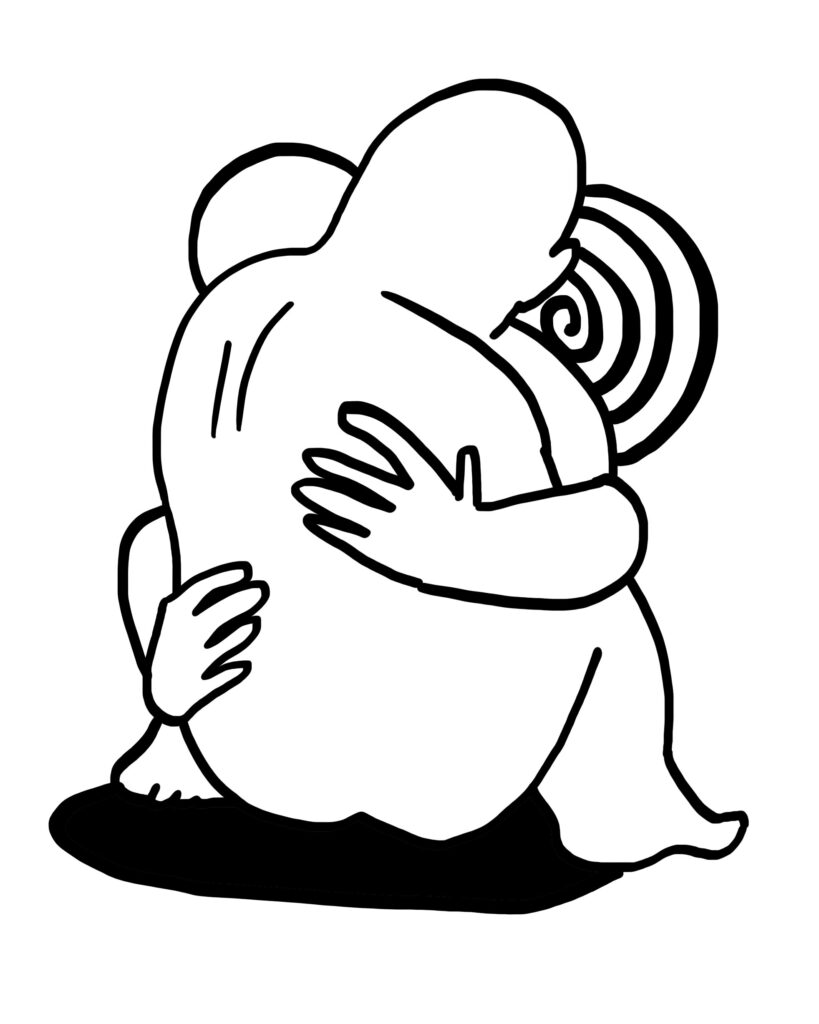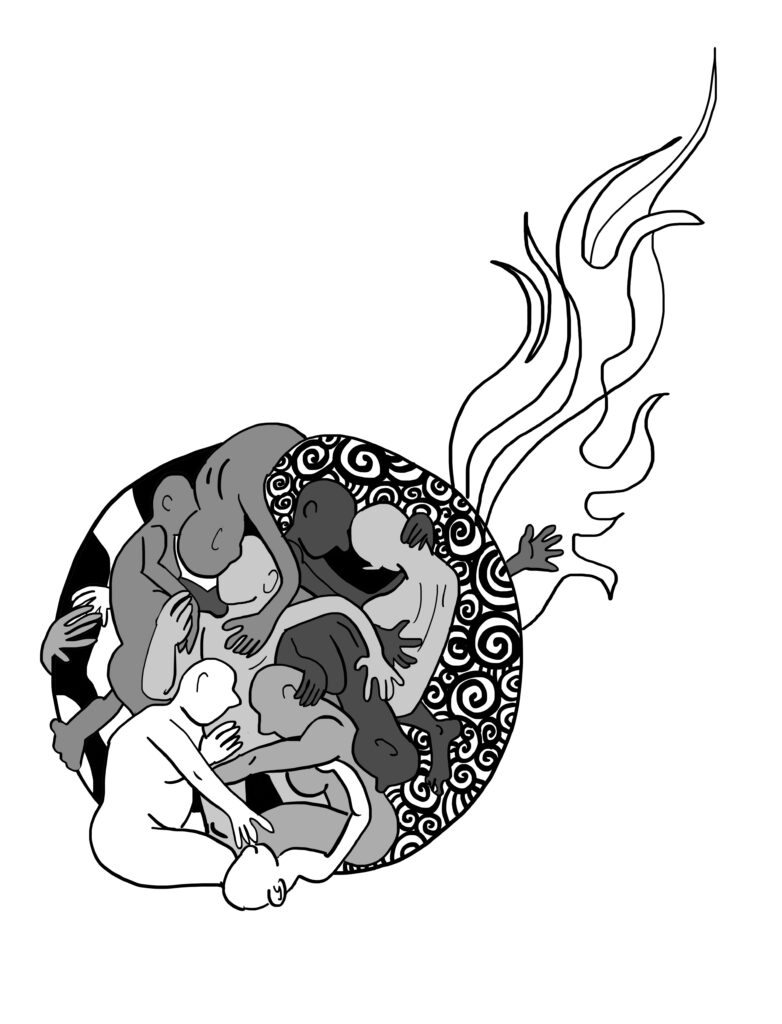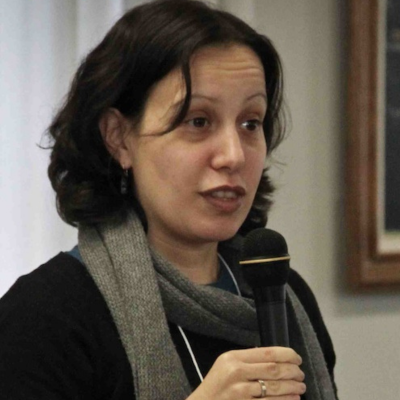The following is an excerpt from Fragments, the new magazine from Emor.
by Joelle Novey
We are in the fight of our lives to preserve a livable planet — a fight we didn’t choose. Burning fossil fuels by the last three generations has blanketed Earth in heat-trapping climate pollution. We are the first generation to experience the climate crisis and the last that will be able to do anything about it.
Sometimes we feel like the Israelites facing the Red Sea, hemmed in with the Egyptian army behind us. Chased, entrapped, bound on all sides. Only a miracle can save us.
But I find much more helpful and hopeful guidance in an earlier story about Jacob, for whom our people is ultimately named. Jacob, preparing to meet his estranged brother Esau, has just sent his family and flocks across the river when he is abruptly attacked by “a man” who forces him to fight for his life all night long, injuring him badly in the process. (Genesis 32:25-33)
Like Jacob, this adversary came upon us suddenly; we were born into a world with already unprecedented concentrations of pollution in the atmosphere and came of age in an economy built upon fossil fuels, where powerful corporate interests delayed public understanding of the dire science for decades.
If we reckon honestly with the reality we face, we all find ourselves pinned down by and intertwined with massive forces we didn’t build and didn’t choose but which now directly threaten our safety and our world.
This fight chose us; like Jacob, though, once attacked, we are not free to demur.
That’s why Jacob’s decision to struggle, and the way in which he engages in the fight, has so much to teach us about the freedom we do have.

Incredibly, Jacob ends this unchosen and bruising fight on his own terms. He grasps his adversary, who is preparing to depart, and says: “I will not let you go until you bless me.”
None of our classical Jewish texts fully anticipate the specific horror of this moment, where human beings have become the driving force behind Earth’s global climate. But our sacred texts always understood that people, even God’s holy and precious people, must make choices in situations of profound un-freedom, where their agency is severely constrained by outside forces and the errors of their forebears.
What can we learn from Jacob’s famous struggle about finding agency and dignity in our own? What blessings can we wrest from the fight to repair our damaged climate?
We fight climate change as ourselves and can only be true to our authentic selves by being in this fight.
Once upon a time, Jacob had disguised himself to steal his brother’s birthright and had a reputation for being physically weak. But in this struggle, Jacob fights as himself and understands the struggle defines him. As the climate scientist and educator Dr. Katharine Kayhoe writes, nobody needs to become someone else to join the fight against climate change — we need only to become more fully who we already are.1 No matter what we love or care about, climate change is a threat to our beloveds, and we are all already who we need to be to engage in the fight for what we love.
Climate destruction is causing real harm. We must grieve all that we are losing.
Even a fight that ultimately blessed Jacob and named our people caused real injury that the Torah doesn’t dismiss. Jacob limped away from the fight after an injury to his thigh. We pay attention to that injury to this day by excluding the corresponding parts of animals in preparing kosher meat.
In the fight against the climate crisis, we too are experiencing real losses to which we must bear witness. “As a rabbi and climate activist, [I’ve] already been grieving a long time,” writes Rabbi Shoshana Meira Friedman. “For our trees, for the great Appalachian hemlock forests, as well as for the burning Amazon, the oceans choked in plastic, the hungry people. For the whole beautiful and complex system of life, brought to its knees by a species rich in intelligence and poor in wisdom, the most dangerous apex predator ever to walk the Earth.”2
We need to lament that even if we prevail in preserving a liveable planet, tremendous damage and suffering has already been set in motion by climate damage. We must honor the losses and heartbreak, the injury we’ll always carry, and the sacred importance of all that cannot be saved.
We must move from the fantasy of isolation to recognition of our profound interdependence.
Our story opens with Jacob alone, facing the fight by himself. By the time the story ends, Jacob receives the name Israel, a name he will share with an entire people, indefinitely into the future. We, too, have the opportunity in the battle against climate change to understand how profoundly we are not alone but interdependent with each other and all of nature, accountable for the world we leave for future generations. The struggle to restore ecosystems, reform food and energy systems, and repair our damaged climate requires us, like Jacob, to understand more deeply that we are never truly alone, and that we are, as Rev. Dr. Martin Luther King Jr. wrote, “woven in a single garment of destiny.”3
This is a fight that’s grounded not in destruction but in love.
The Hebrew word usually translated as “wrestled,” vaye’avek, appears only once in Torah, so its meaning is opaque. What Jacob is doing with this man could be understood as a fight, or, on the contrary, as an embrace. Its root comes to mean “dust,” so this hug-or-fight is sufficiently physical on the ground that the participants “got dusty with” each other. Artistic depictions of Jacob’s encounter show two figures intertwined — sometimes in a hug or dance, others wrestling. The fight and the love coexist in Jacob’s struggle and its outcome. Likewise, our fight to preserve a livable world, even when it takes the form of dissent, protest, and conflict with corporate interests, is grounded in love for the people and places that will be harmed by climate destruction.
We have to redefine what the blessing of a “good life” means.
As Rabbi Jonathan Sacks writes, young Jacob stole a blessing intended for Esau that bestowed wealth and domination: “The dew of heaven and the richness of the earth … May nations serve you and peoples bow down to you …” (Genesis 27:28-29) Twenty-two years later, Jacob extracts a very different blessing from this struggle. Sacks continues, “To be complete we do not need Esau’s blessings of wealth and power. Ours is another face, an alternative destiny … The face we bear is the image we see reflected in the face of God when we wrestle … and refuse to let go.”4

Likewise, the climate crisis testifies to the emptiness of material convenience that we might have once prized and on which our carbon economy was built. Confronting the deadly implications of continuing to build our lives on extraction and combustion forces us all to wrestle with whether our idea of the “good life” needs re-definition. From this struggle, we can demand a different blessing that is truly life-giving and preserves the sacred.
When humanity fights to address the climate crisis, we are in a struggle with ourselves.
Nechama Leibowitz z”l and others have read Jacob’s wrestling match as an internal struggle, a battle within himself from which he emerges with a stronger identity and a new name.5 The climate crisis, too, is an adversary of our own making and calls all of us who benefit or are complicit in its machinery to account. “You can’t have climate change without sacrifice zones,” writes Hop Hopkins, a leader at the Sierra Club, “and you can’t have sacrifice zones without disposable people, and you can’t have disposable people without racism.”6 We cannot move away from the exploitative and oppressive systems that created the climate crisis without coming face to face with the racism and denial of our interdependence in which we have participated that has made such destruction possible.
We can insist that this fight bless us.
We have the freedom, despite all of the constraints, to wrest a blessing from this fight. I love that so many artistic depictions of Jacob’s struggle show him with his head up, serene and grounded, unashamed and full of purpose. That’s how I want to be as a warrior in this moment, clear on the stakes and liberated by the fierce energy I feel to protect all that is sacred. There is no shame and much blessing in fighting with all our might for all that we love.
This is not a fight we chose, but we’re in it, and we can refuse to let it go without a blessing. For me, as I’ve worked with communities of every faith tradition over more than a decade, I’ve come to believe one of the blessings this time has for us is the opportunity to transcend the differences that have kept people apart in the past. There’s freedom in understanding that, at last, every person and group of people, Israel and every nation, are all in one fight, together, for everything that really matters on the one common home we share.
1 Hayhoe, Katharine. Saving Us: A Climate Scientist’s Case for Hope and Healing in a Divided World (2021: Simon & Schuster)
2 Friedman, Rabbi Shoshana Meira, “Teaching My Child to Love a Dying World” in The New York Times, Jan 4, 2021
3 King, Jr. Rev. Dr. Martin Luther. “Letter from a Birmingham Jail,” April 16th 1963
4 Sacks, Rabbi Jonathan. “Covenant and Conversation: Jacob Wrestling” https://www.rabbisacks.org/covenant-conversation/vayishlach/jacob-wrestling/
5 As cited in Etz Chayim: Torah and Commentary, p.201
6 Hopkins, Hop. “Racism is Killing the Planet: The ideology of white supremacy leads the way toward disposable people and a disposable natural world,” Sierra Magazine. June 8, 2020 https://www.sierraclub.org/sierra/racism-killing-planet

Joelle Novey directs Interfaith Power & Light (DC.MD.NoVA), through which congregations of many traditions are responding to climate change together, and speaks widely about the role of religious voices in the climate movement. She lives with her family in Silver Spring, MD, davens at Minyan Segulah, and serves on the advisory board of Dayenu: A Jewish Call to Climate Action.
